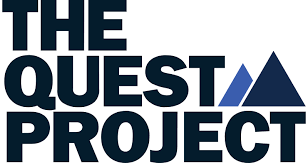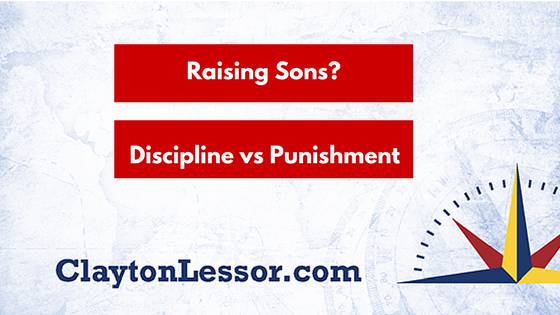Raising Sons? Discipline vs Punishment
Discipline or Punishment?
What’s the difference you ask! There’s a big difference between discipline and punishment.
Punishment.
So your son has broken the rules; he’s been caught drinking or smoking, maybe a bad report card? You have to do “something,” he’ll have to be punished. The way to stop a child from misbehaving is to cause some kind of pain right? This usually means “grounding” a boy or taking away privileges like cell phones, video games, and other toys.
And guess what? That doesn’t work!
Punishment doesn’t work because it isn’t about your boy. It’s about instant gratification for you. You feel bad and want to convey your disappointment. You make him feel bad; you feel your job is done. He doesn’t learn anything from this experience. What he learns is fear he can get caught, and that’s not a lesson. It can actually make the behavior worse, pushing it underground and teaching him to become a better liar, sneaker, or just better at finding ways to not get caught.
So, if punishment doesn’t work and you’re not supposed to ignore bad behavior, what option is left?
Discipline!
Taking things away or grounding is not discipline. Discipline and punishment are two different things. The word discipline, from the root word discere, means “to learn.” When you discipline, the goal is not to inflict physical or emotional discomfort, but to teach something by employing something we call natural consequences.
The natural consequence is when something automatically happens as a result of something else happening (like a sunburn when you choose not to wear sunscreen). Your job as a parent is to create natural consequences that will deliver those lessons.
This can be a hard concept for parents to grasp, but it’s actually easy to do. Sit down with your son, lay down the rules of the house (in advance) and tell him this, “These are the rules. If you follow these rules, you get to do what you want, within reason.”
Next important part. Ask your child, “What is it that you want?”
He’s probably got a long list! The way natural consequences work is, as long as your son follows the rules you’ve established in advance, he gets to do and have those things (within reason and provided they’re age-appropriate and you approve).
You don’t punish or take anything away. Your son now knows he can choose to have what he wants, or to not have what he wants. That takes you out of the way. Making it all about you and not your son is what gets everybody in trouble. Giving your child responsibility for his behavior may not sound like an earth-shattering concept, but it’s actually a big deal.
How It Works
Setting up natural consequences lets him feel his power. It puts him in control of outcomes. He’ll reach a point where he’s tempted to step the wrong way and suddenly remember, “Oops, I should have made a right instead of a left, now I have consequences for that.” It’s not about getting caught by mom or dad, it’s about making a conscious choice to step in the right direction. It’s about learning the rules, and that if he keeps doing what he’s doing, he’ll get more of what he wants. As he keeps stepping into his power over the years, he’ll grow into a healthy, confident man.
Isn’t that exactly what you want?
Natural consequences are incredibly effective. When you’re establishing them for the first time, don’t forget your son’s attention span. Drone on for more than five minutes and he may forget 90% of what you say. Instead, make it visual and physical. Use whiteboards, use charts, anything that allows him to visually track his progress/success or shortfalls. It eliminates begging you for things he wants, all he has to do is look at the chart to see if he’s earned it. Boys respond well to that visual and physical effect, because the visual itself is rewarding.
Rewarding—not punishing—is the most effective kind of discipline.
Want more on this subject? Watch for my next book due out early 2018-I dedicate an entire chapter to this topic! In the meantime, feel free to post your questions or comments to my Facebook page.

